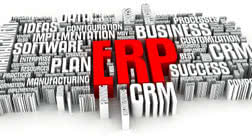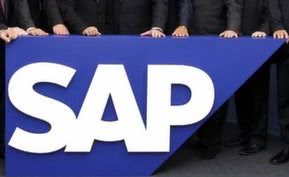ERP
3 Top Reasons to Keep Your ERP Software Current

The face of business software is changing rapidly with the advent of mobile applications and cloud solutions. Yet, the world of ERP remains fairly static. Many key ERP Software vendors are gradually moving into the mobile and cloud space, but where are the truly big ERP innovations? Oracle Fusion has been almost a decade in the making, and user adoption is extremely slow. SAP is rolling out HANA, but early reviewers seem frustrated with bugs and development issues.
Perhaps this is the nature of ERP. It’s not easy to implement, so many companies feel that once it’s stable, a top ERP solution is best left untouched. Unsurprisingly, then, a recent Forrester study found that roughly half of all ERP customers are two versions behind the current release. Yet, the ever-changing market place demands that ERP adapts to current trends and issues. If you want to stay competitive, you have to be volatile and fast-moving.
The Need for Speed and Ease
One of the reasons why cloud computing has taken off in recent years is because of the ability to deliver fast: implementation is light, and a business can be up and running with a full set of functionality in no time. What’s more, little to no maintenance is required. Outdated ERP systems are known to use up the IT budget by as much as 90%, leaving hardly any room for innovation. This is due to constant upgrades, patches, and bug fixes that are needed just to keep ERP stable and in line with the demands of the users.
This general lack of agility is felt in other areas as well. Mobile computing is on the rise. Business users experience any time, anywhere access at home with their mobile devices and are expecting the same in their workplace. Data needs to be available on the go and at the click of a button. Old ERP systems do not provide this capability.
Centralization Can Hurt Your Business
The centralized nature of outdated ERP does not support the decentralized nature of today’s market place. Off-shoring, outsourcing, and telecommuting aren’t new trends by any means, and ERP vendors have responded to them in various ways, but how is an ERP system that is two versions behind the current release supposed to compete with iPhones, iPads, Androids, and other mobile devices that receive new releases every year?
True, a centralized ERP system guarantees control of data. This is a key concern lobbed against cloud vendors: how safe is it to have your data available in the cloud versus in-house? Yet, users as well as customers are demanding immediate access to data. Customers require instant status updates on their orders, management wants real-time visibility into the company’s processes, and so on.
What’s the Answer?
Many might say it’s the cloud. It provides pre-packaged solutions that typically require limited investment up-front, both in terms of cash and infrastructure. The cloud is well-suited for current market demands (instant access, agility, and flexibility), while also offering the capability to easily scale up usage and additional functionality.
Another option, however, for companies that are hesitant to make the leap to cloud, is business process automation. In recent years, a growing number of software vendors are delivering solutions that automate ERP by way of workflow, vendor portals, and more. This can be done with a combination of on-premise and cloud-based add-ons. These packages, however, like the ERP systems they are automating, by and large aren’t cheap or easy to install.
The answer may not be so simple then. But one thing is clear: outdated ERP hurts your business. It hinders growth, flexibility, innovation, and – as a result – your ability to compete in the market space.
Want more information on ERP software? Discover and learn more about enterprise resource planning software by exploring blog posts, white papers and more at our ERP research center. For comparisons of the best ERP solutions on the market, download Business-Software.com’s Top 20 ERP Software report.






